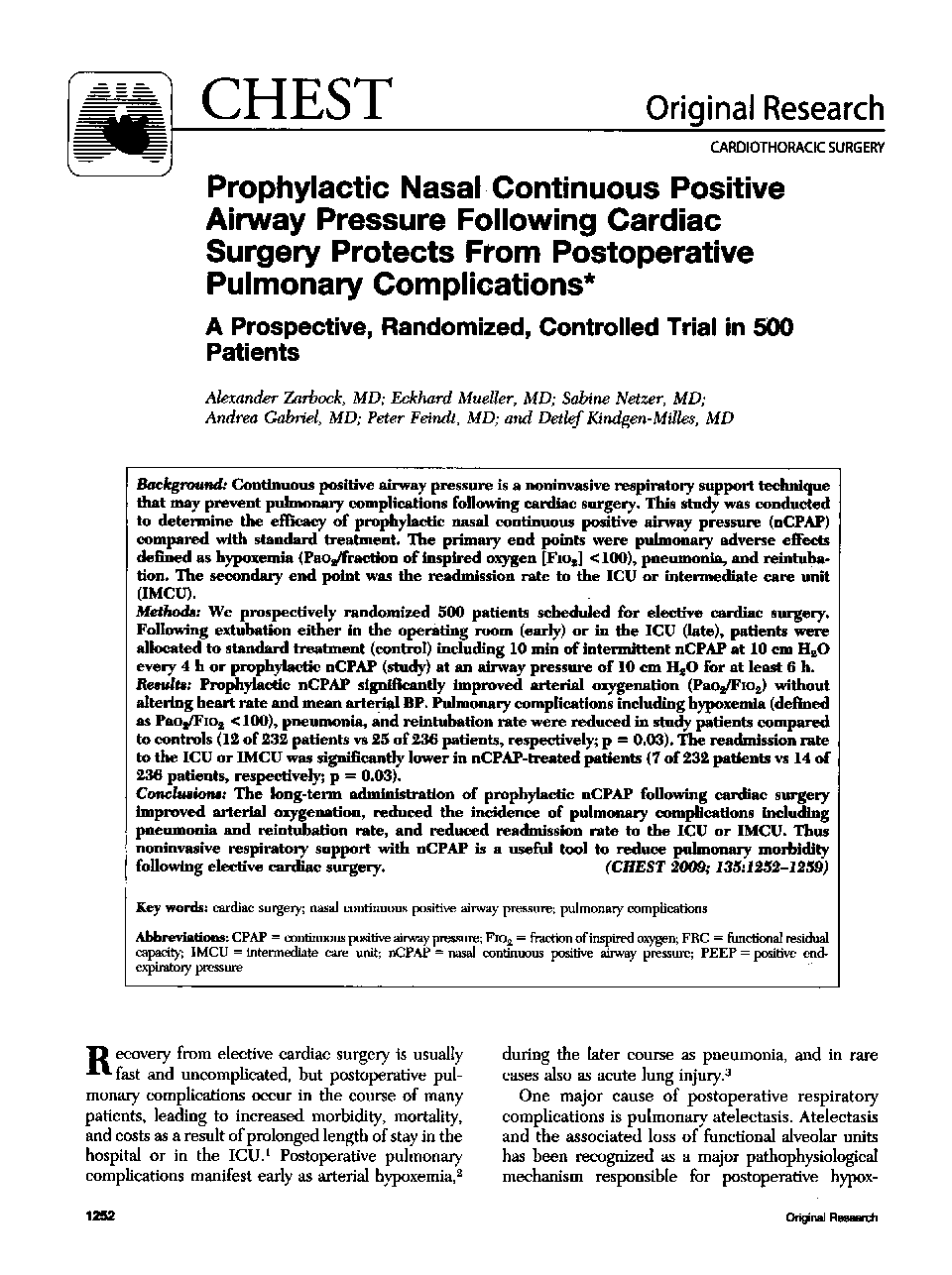| Article ID | Journal | Published Year | Pages | File Type |
|---|---|---|---|---|
| 2903209 | Chest | 2009 | 8 Pages |
BackgroundContinuous positive airway pressure is a noninvasive respiratory support technique that may prevent pulmonary complications following cardiac surgery. This study was conducted to determine the efficacy of prophylactic nasal continuous positive airway pressure (nCPAP) compared with standard treatment. The primary end points were pulmonary adverse effects defined as hypoxemia (Pao2/fraction of inspired oxygen [Fio2] <100), pneumonia, and reintubation. The secondary end point was the readmission rate to the ICU or intermediate care unit (IMCU).MethodsWe prospectively randomized 500 patients scheduled for elective cardiac surgery. Following extubation either in the operating room (early) or in the ICU (late), patients were allocated to standard treatment (control) including 10 min of intermittent nCPAP at 10 cm H2O every 4 h or prophylactic nCPAP (study) at an airway pressure of 10 cm H2O for at least 6 h.ResultsProphylactic nCPAP significantly improved arterial oxygenation (Pao2/Fio2) without altering heart rate and mean arterial BP. Pulmonary complications including hypoxemia (defined as Pao2/Fio2 <100), pneumonia, and reintubation rate were reduced in study patients compared to controls (12 of 232 patients vs 25 of 236 patients, respectively; p = 0.03). The readmission rate to the ICU or IMCU was significantly lower in nCPAP-treated patients (7 of 232 patients vs 14 of 236 patients, respectively; p = 0.03).ConclusionsThe long-term administration of prophylactic nCPAP following cardiac surgery improved arterial oxygenation, reduced the incidence of pulmonary complications including pneumonia and reintubation rate, and reduced readmission rate to the ICU or IMCU. Thus noninvasive respiratory support with nCPAP is a useful tool to reduce pulmonary morbidity following elective cardiac surgery.
